Reorganize inspection agencies nationwide
The National Assembly passed the Law on Inspection (amended). Photo: Doan Tan/VNA
The Law on Inspection (amended) was approved by 443/445 delegates (accounting for 92.68% of the total number of National Assembly delegates). The Law consists of 64 articles, stipulating a system of inspection agencies organized at two levels: the Government Inspectorate and the Provincial and Municipal Inspectorates (collectively referred to as the Provincial Inspectorate). Along with that, the Law also stipulates that a number of ministries and branches have specific inspection agencies, including inspection agencies in the police, army, and State Bank (Inspector of the Ministry of National Defense, Inspector of the Ministry of Public Security , Inspector of the State Bank and other inspection agencies in the army, people's police, and the State Bank of Vietnam according to the Government's regulations); Cryptographic Inspectorate; inspection agencies established under international treaties.
The Law also stipulates additional duties and powers for the Government Inspectorate and Provincial Inspectorate. Accordingly, the Government Inspectorate has the right to "inspect the implementation of policies, laws, duties and powers of agencies, organizations, units and individuals under the management of ministries without ministerial inspectorates"; "inspect the compliance with laws in areas under the state management of ministries without ministerial inspectorates".
The case is complicated, related to the State management responsibilities of many ministries, ministerial-level agencies, provincial People's Committees, and also under the inspection authority of the Government Inspectorate...
Establishment of regional court
With 446/448 delegates voting in favor (accounting for 93.31% of the total number of National Assembly delegates), the National Assembly voted to pass the Law amending and supplementing a number of articles of the Civil Procedure Code, the Administrative Procedure Law, the Juvenile Justice Law, the Bankruptcy Law and the Law on Mediation and Dialogue at Court. The Law takes effect from July 1.
The Law stipulates the jurisdiction of the Regional People's Court in the direction of transferring all jurisdiction to try at first instance all types of administrative cases, civil, business, commercial, labor, and bankruptcy cases to the Regional People's Court, in order to institutionalize the Party's policy of strengthening decentralization and delegation of power to the grassroots.
According to the agency in charge of drafting the Law project, the regional court is a newly established court level with a larger scale, authority, number and quality of judges than the previous district court.
The Law also stipulates that the Supreme People's Court will supervise the trials of the courts. The People's Courts of provinces and centrally run cities (provincial courts) will supervise the trials of the regional people's courts within their territorial jurisdiction to ensure strict and uniform application of the law.
The Law stipulates the jurisdiction of the provincial people's court, in the direction of having the right to resolve by appeal procedures cases in which judgments and decisions of the regional people's court that have not yet taken legal effect are appealed or protested; to review and re-trial judgments and decisions of the regional people's court that have taken legal effect but are protested. The provincial court has the authority to resolve requests to annul arbitration awards and register arbitration awards in accordance with the provisions of the Law on Commercial Arbitration.
District government documents continue to be effective until February 28, 2027.
National Assembly deputies unanimously passed laws and resolutions. Photo: Doan Tan/VNA
With 432/434 delegates participating in the vote in favor (accounting for 90.38%), the National Assembly voted to pass the Law amending and supplementing a number of articles of the Law on Promulgation of Legal Documents.
The highlight of the Law is the provision of additional transitional provisions on the validity of legal documents after the arrangement and adjustment of administrative boundaries. Accordingly, documents of district-level authorities will continue to be effective until February 28, 2027 for review and appropriate application.
The Law also supplements the authority of the People's Council and the Chairman of the Provincial People's Committee in issuing decentralized documents, as well as expanding the scope of issuing legal documents for the People's Council and the People's Committee at the commune level in accordance with the functions and tasks assigned in the Law on Organization of Local Government, which was recently passed by the National Assembly on June 16.
The Law has removed the provision that the People's Committee at the commune level can issue decentralized legal documents, instead, it only stipulates that the decentralized authority belongs to the People's Council at the provincial level. In addition, it supplements the form and authority to issue legal documents of the Chairman of the People's Committee at the provincial level and expands the scope of issuing legal documents of the People's Council and the People's Committee at the commune level in accordance with the corresponding tasks and powers in the Law on Organization of Local Government.
With the National Legal Portal being put into operation from May 31, 2025 under the direction of the Prime Minister, the Law has added provisions on posting draft legal documents on the National Legal Portal at all stages, including drafting, reviewing and documents of the President, the Supreme People's Court, the Supreme People's Procuracy and joint documents.
Double the maximum fine without a ticket
With 435/435 delegates participating in the vote in favor (accounting for 91% of the total number of National Assembly delegates), the National Assembly voted to pass the Law amending and supplementing a number of articles of the Law on Handling of Administrative Violations.
The law doubles the maximum fine that does not require a record from 250,000 VND for individuals and 500,000 VND for organizations, to 500,000 VND for individuals and 1,000,000 VND for organizations.
The Law supplements the field of complaints, denunciations, recommendations, and reflections with a maximum fine of 30 million VND. The field of data and digital technology industry has a maximum fine of 100 million VND. The field of integrated management of resources and protection of the marine and island environment has a maximum fine of 500 million VND.
According to the Government's Report on Acceptance, many opinions proposed to increase the fine level in the fields of road traffic, food safety and health. However, adjusting the maximum fine level is a big issue with a large scope of impact, requiring a full and comprehensive summary and assessment of the impact. Therefore, the Law does not propose to increase the maximum fine level in the fields of State management. For fields that need to be increased to ensure deterrence, the Government will direct the drafting agency to take note, research and make a comprehensive assessment to propose amendments in the coming time.
The amended law also allows the competent authorities to sell the exhibits and means of administrative violations in some cases. After 10 days from the date of expiration of the temporary detention period, the detainer will be able to deal with exhibits and means that are likely to be damaged, degraded in quality, or those that pose a risk of fire or explosion, environmental pollution, or impact on public health during the management and preservation process. Proceeds from the sale of exhibits and means must be deposited into a temporary detention account opened at the State Treasury.
Improve the quality and effectiveness of activities of National Assembly deputies
With 434/436 delegates participating in the vote in favor (accounting for 90.79% of the total number of National Assembly delegates), the National Assembly voted to pass the Resolution of the National Assembly amending and supplementing a number of articles of the Internal Regulations of the National Assembly session issued together with Resolution No. 71/2022/QH15 of the National Assembly. The Resolution takes effect from July 1, 2025.
The issuance of the Resolution aims to ensure consistency and synchronization with the laws and resolutions of the National Assembly that have just been issued, and at the same time, promptly institutionalize the Party's policies, contributing to innovation and improving the quality of the National Assembly's activities.
Regarding the National Assembly Session, the Resolution clearly states: The National Assembly Session can be held continuously or in several sessions.
Regarding the responsibilities of National Assembly deputies, the Resolution supplements regulations on the responsibilities of National Assembly deputies in applying information technology, aiming to improve the quality and efficiency of the activities of National Assembly deputies and National Assembly sessions.
The Resolution also stipulates that the first time a National Assembly delegate speaks, the speech time shall not exceed 7 minutes, and the second time shall not exceed 3 minutes. At the same time, to increase flexibility and initiative in the management of each specific session, ensuring harmony between promoting the right of delegates to participate in giving opinions and the requirements for managing the general time of the session, the Resolution stipulates that the chair and the person running the session, based on the actual developments and the number of delegates registered to speak, may propose that the National Assembly decide to shorten or extend the speaking time or extend the session time.
Decentralization of decision making and adjustment of state budget estimates
The National Assembly passed the Law on State Budget (amended). Photo: Doan Tan/VNA
With 426/430 delegates participating in the vote in favor (accounting for 89.12% of the total number of National Assembly delegates), the National Assembly voted to pass the State Budget Law (amended).
The Law allows the National Assembly to delegate the authority to decide on the establishment and adjustment of the state budget estimates to the Government. Accordingly, the Government shall establish an adjusted state budget estimate in case of changes that increase the borrowing level or deficit compared to the allocated estimate, and submit it to the National Assembly for decision. Based on the National Assembly's resolution, the People's Committees at all levels shall establish an adjusted local budget estimate and submit it to the People's Councils at the same level for decision.
The Government also decided to adjust the revenue and expenditure estimates of a number of ministries, ministerial-level agencies, government agencies, other central agencies and a number of provinces and cities. However, this does not increase the total borrowing and budget deficit and needs to be reported to the National Assembly Standing Committee and the National Assembly at the nearest session.
The Law on Budget (amended) consists of 79 articles, effective from the 2026 budget year. In particular, regulations on budget preparation, State budget implementation and budget decentralization at provincial and communal levels in the fields of science, technology, innovation and digital transformation will take effect from July 1, 2025. The 2024 budget settlement and the process and requirements for budget preparation for 2026 shall apply according to the provisions of the Budget Law No. 83/2015.
Timely removal of bottlenecks in national development
With 432/434 delegates voting in favor (accounting for 90.38% of the total number of National Assembly delegates), the National Assembly voted to pass the Law amending and supplementing a number of articles of the Law on Bidding; Law on Investment under the public-private partnership model; Customs Law; Law on Export Tax and Import Tax; Investment Law; Law on Public Investment; Law on Management and Use of Public Assets.
The Law amends 8 laws to overcome current difficulties and shortcomings; at the same time, legalizes contents according to the Party's guidelines and policies, especially promoting the development of science and technology, innovation and digital transformation, removing bottlenecks, unblocking resources, and meeting the country's development requirements.
The law stipulates the handling of revenue reduction problems of BOT projects in the road sector signed before January 1, 2021. Accordingly, it supplements the provisions of the Law on Investment under the Public-Private Partnership (PPP) method on the mechanism for handling revenue reduction risks for BOT projects with contracts signed before the PPP Law takes effect. According to government statistics, there are 11 BOT traffic projects with reduced revenue.
Regarding the amendment and supplementation of a number of articles of the Law on Public Investment, according to the Report on acceptance, explanation and revision of the draft law, the Government accepts the direction of not stipulating the content of the task of preparing for site clearance in the Law. The Government will continue to study and propose policies to amend the Land Law and other relevant laws to accelerate the implementation of compensation, support and resettlement for public investment projects.
VNA
Source: https://kontumtv.vn/tin-tuc/tin-trong-nuoc/quoc-hoi-thong-qua-nhieu-luat-sua-doi-nghi-quyet-quan-trong


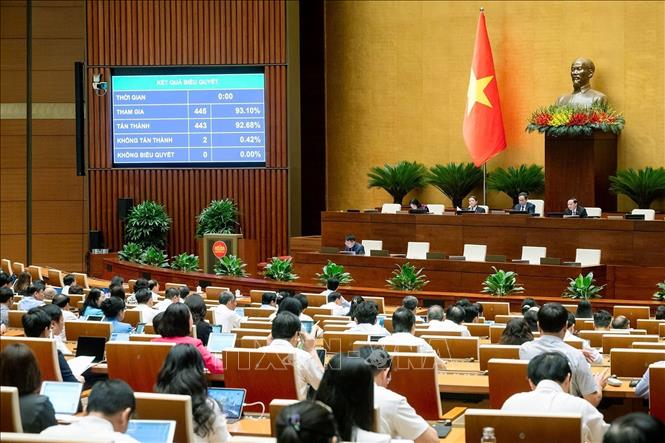
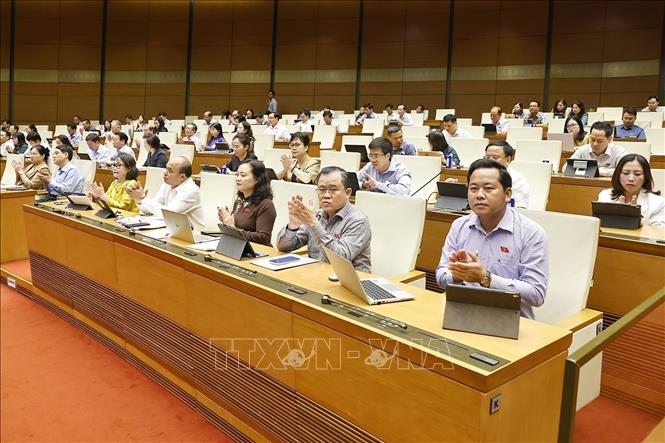
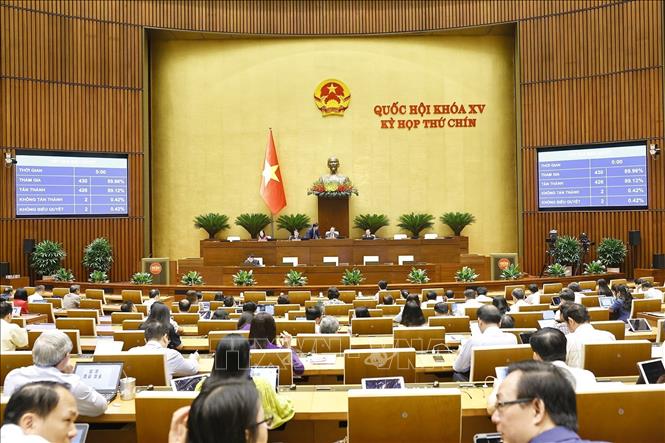

![[Photo] Dan Mountain Ginseng, a precious gift from nature to Kinh Bac land](/_next/image?url=https%3A%2F%2Fvphoto.vietnam.vn%2Fthumb%2F1200x675%2Fvietnam%2Fresource%2FIMAGE%2F2025%2F11%2F30%2F1764493588163_ndo_br_anh-longform-jpg.webp&w=3840&q=75)









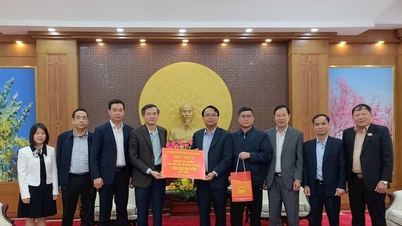









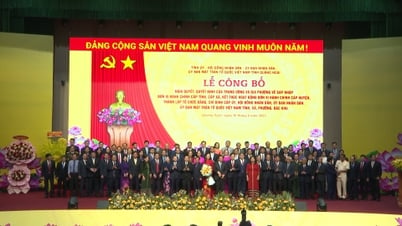

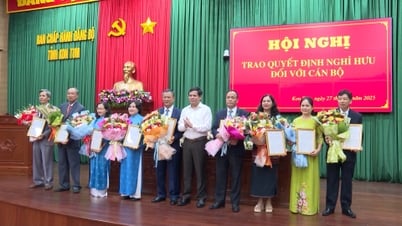
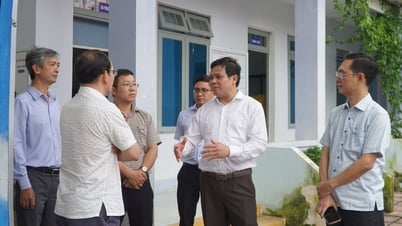
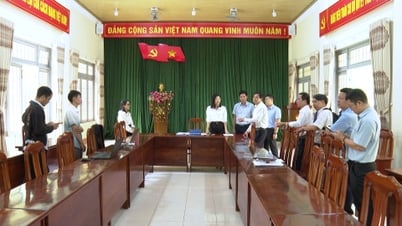
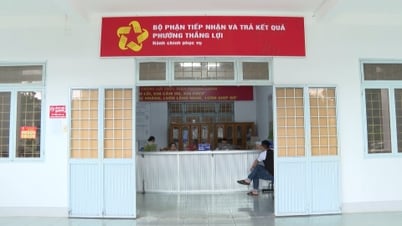


















































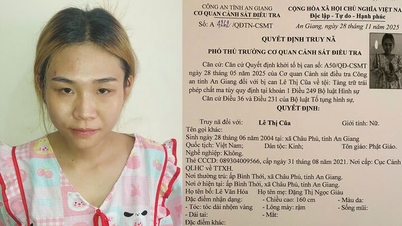

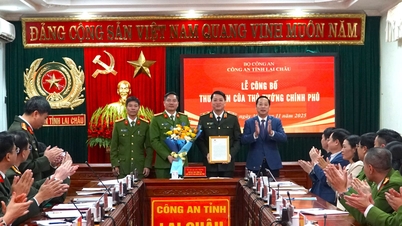

















Comment (0)